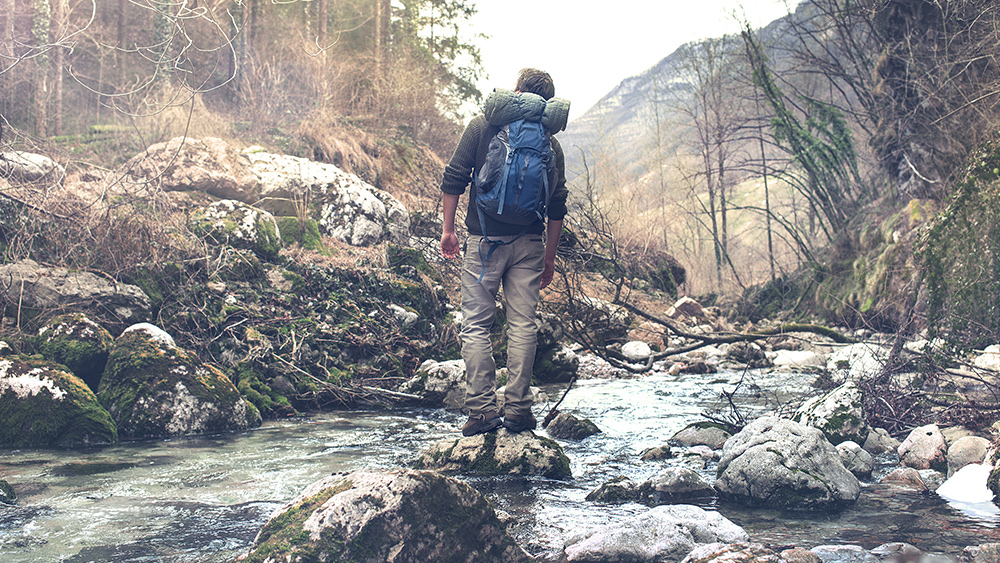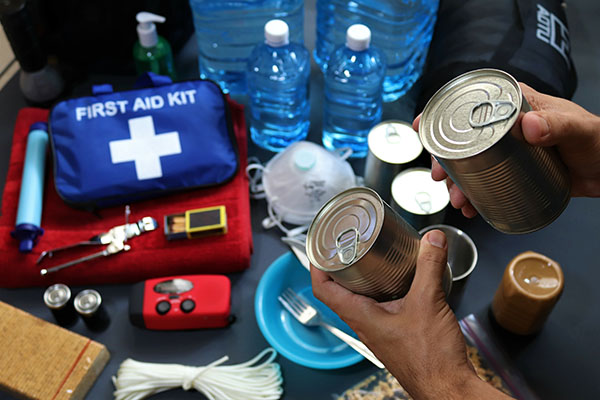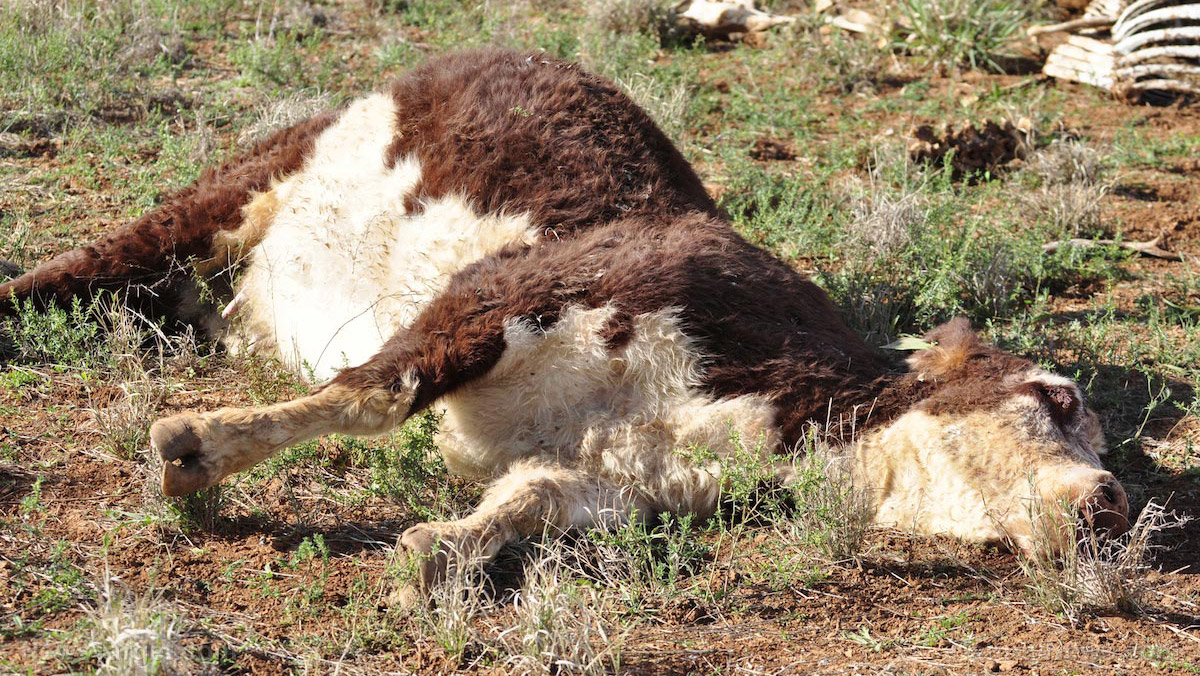Colin Towell shares wisdom from his book “Essential Survival Skills”
07/23/2025 / By Ramon Tomey

- In “Essential Survival Skills,” Colin Towell argues that success in survival hinges on knowledge, ability, the innate will to survive and luck. While the first two can be learned, the will to endure is often revealed only in crises.
- Stories illustrate how determination trumps equipment. Well-prepared individuals may succumb to despair while resourceful, resilient survivors prevail against odds.
- Practical skills (e.g., fire-making, shelter-building) must be practiced under realistic conditions. Diagnosing problems (like wet tinder) and improvising solutions (e.g., carving dry wood) are critical.
- Survival begins with understanding and respecting nature’s risks. Meticulous planning (e.g., reliable gear, navigation skills) and environment-specific strategies (e.g., water procurement in deserts) prevent emergencies.
- Disasters can trigger panic; training and routines foster focus. Visibility via fires, mirrors or signals is vital for rescue. The book emphasizes adaptability, proving survival hinges on creativity, not just tools.
Colin Towell’s “Essential Survival Skills” is more than just a manual. It’s a profound exploration of what it takes to endure in the wild.
Drawing from his years of experience as a survival instructor and advocate for natural living, Towell distills survival into four indispensable elements: Knowledge, ability, the will to survive and luck. While knowledge and skill can be learned through practice, the will to survive is innate, often emerging only in dire circumstances
Towell recounts gripping anecdotes of well-equipped individuals who succumbed to despair, while others with scant resources survived through sheer determination. These stories underscore a vital truth. Mindset is as critical as technique in survival.
Central to Towell’s philosophy is efficiency – maximizing gains while minimizing energy expenditure. Whether on a brief hike or an extended expedition, mastering this principle informs better preparation, equipment choices and skill practice.
For instance, starting a fire with a lighter is straightforward, but what if it fails? True survival skill lies in diagnosing problems (like wet tinder) and adapting solutions (such as carving dry inner wood). Practicing under realistic conditions, not just ideal ones, builds the ingenuity needed for real crises.
Understanding your environment is equally crucial. Towell stresses that survival begins with respecting nature’s dual beauty and hazards. Avoidable missteps often stem from ignorance, arrogance or underestimating terrain.
Thus, meticulous planning – like packing reliable “first-line” gear and mastering its use – can prevent emergencies. Even simple tools like a walking stick prove invaluable, offering stability, defense and versatility.
Towell also delves into the psychology of survival. Disasters can trigger “psychogenic shock,” manifesting as panic, depression or hyperactivity.
Mental resilience, he argues, is cultivated through training, motivation and hope. For example, maintaining routines in camp fosters focus, while acceptance of adversity reduces paralyzing fear.
Navigation is another pillar of survival. Towell covers traditional methods (compasses, maps) and improvised techniques – using the sun, stars or a makeshift compass.
Each environment, from forests to deserts, demands unique strategies. In tropical zones, securing clean water takes priority. In snowy landscapes, insulation against hypothermia is key.
Shelter-building and fire-making are cornerstones of campcraft. Towell advises selecting sheltered sites, constructing debris huts and mastering fire-starting with everything from flint to friction. Fire isn’t just for warmth; signaling rescuers with smoke or reflective surfaces can save lives.
Food and water procurement follow practical frugality. Solar stills can extract moisture from plants, while avoiding unknown berries prevents poisoning. Towell prioritizes low-effort foods like edible plants and insects over energy-dense but elusive game.
In emergencies, visibility is critical. Signals – dome fires, flares or arranged rocks – must contrast with surroundings. Personal Locator Beacons expedite rescues, but ingenuity (like flashing a mirror) suffices when technology fails.
Ultimately, Towell’s book is a testament to preparation meeting adaptability. The wilderness rewards respect and punishes complacency.
Whether you’re a novice or expert, “Essential Survival Skills” equips you to face the unpredictable – not just with tools, but with the wisdom to use them creatively. As Towell reminds us, survival isn’t just about enduring; it’s about thriving with the lessons nature imparts.
Watch this video about the book “Essential Survival Skills” by Colin Towell.
This video is from the BrightLearn channel on Brighteon.com.
Sources include:
Submit a correction >>
Tagged Under:
camp craft, Colin Towell, creativity, equipment, Essential Survival Skills, Gear, knowledge, Mindset, preparedness, prepping, survival, survival food, survival medicine, survival skills, sustenance, will to live, willpower
This article may contain statements that reflect the opinion of the author
RECENT NEWS & ARTICLES
COPYRIGHT © 2018 SELFDEFENSE.NEWS
All content posted on this site is protected under Free Speech. SelfDefense.news is not responsible for content written by contributing authors. The information on this site is provided for educational and entertainment purposes only. It is not intended as a substitute for professional advice of any kind. SelfDefense.news assumes no responsibility for the use or misuse of this material. All trademarks, registered trademarks and service marks mentioned on this site are the property of their respective owners.




















